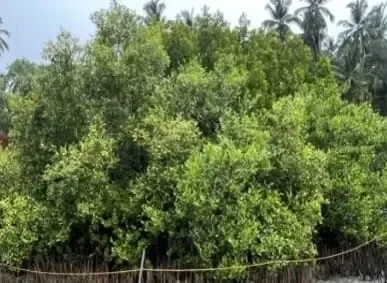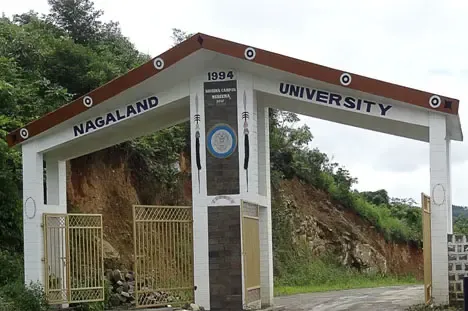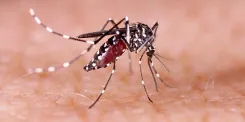CMFRI Conducts Marine Biodiversity Training and Sapling Distribution

Synopsis
Key Takeaways
- CMFRI distributed mangrove saplings to students.
- Training program focused on marine biodiversity conservation.
- Highlighting ecological significance of mangroves.
- Collaboration with local bodies for conservation.
- Encouraging student involvement in preserving nature.
Kochi, Feb 19 (NationPress) The ICAR-Central Marine Fisheries Research Institute (CMFRI) recently distributed mangrove saplings to students, aiming to foster awareness regarding the significance of marine biodiversity conservation among the youth.
This initiative coincided with the launch of a short-term training programme focused on integrated taxonomic techniques for marine biodiversity conservation.
The saplings distributed are from mangroves—plants that thrive in coastal saline or brackish waters, equipped with unique adaptations to absorb extra oxygen and eliminate salt, thus surviving in conditions lethal for most vegetation. Currently, all districts in the state, excluding Idukki, Pathanamthitta, Palakkad, and Wayanad, have some degree of mangrove cover, with Kannur exhibiting the largest area. Nonetheless, the total area of Kerala’s mangrove forests is estimated to be under 50 square kilometres, highlighting their ecological importance.
Participants in the training program, including scientists and officials from various research institutes under the Indian Council of Agricultural Research (ICAR), were involved in distributing these saplings to the students.
The schoolchildren were encouraged to plant the saplings in nearby areas and work towards enhancing mangrove patches.
CMFRI will further assist the students in monitoring the growth of these patches through field visits and expert guidance.
CMFRI Director Dr. Grinson George underscored the significance of mangroves as a natural barrier against storm surges, coastal erosion, and flooding.
He stated, “Mangroves are vital in mitigating the effects of climate change and protecting coastal biodiversity, particularly in tropical ecosystems.”
The 10-day training will encompass both theoretical frameworks and practical applications, shedding light on the essential role of taxonomy in fisheries research.
Over the last five decades, human activity has severely diminished mangrove cover.
In response, the Kerala Forest Department, in collaboration with local government and NGOs, is actively engaged in conserving the state’s remaining mangroves while promoting mangrove tourism, thereby nurturing a greater appreciation for these natural treasures.









